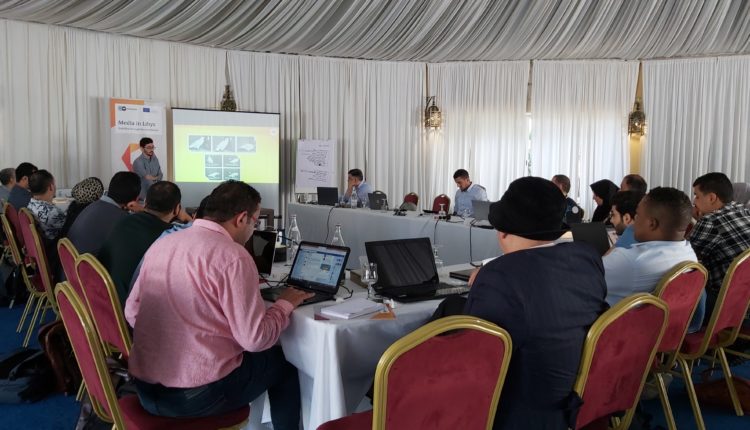As their country is being ravaged by war and division, a group of 16 ambitious Libyan journalists defied the odds by uniting behind the main principle of journalism, uncovering the facts. A week-long training session was conducted in October by Deutsche Welle Akademie in the frame of its European Union funded project as part of the first training course of its kind for Libyan journalists that is meant to be a step towards creating the first ever core group of professional fact checkers in the country. It was not an easy ride though. Some of the trainees found it difficult to work with a number of digital tools since they are used to more traditional ways of verification in the past. Some also struggled to maintain an equal distance to the different parties and regions and focus exclusively on only one thing, checking facts!
The main aim behind the workshop was to establish a clear methodology of fact checking starting with assessing the credibility of media, moving on to evaluating the trustworthiness of sources and ending with the verification of claims that are of interest and concern to the Libyan public.
In the words of one participant, “This training course made me think more methodologically and systematically”. Being consistent in approaching claims to fact check them is one of the most fundamental factors of success in any fact checking mission and this is what trainees were reminded of over and over again.
Another key aspect of the workshop was to be critical and skeptical whenever coming across content online that is not properly backed up with sources. It is an unfortunate reality that many of the news claims that emerge from Libya can be considered a form of disinformation since they clearly aim at misleading rather than inform the public opinion.
Forming the first fact checking mission in Libya is a major undertaking for a noble cause, but it is not one without challenges. Trainees have realized early on how demanding the task is as they spent many hours trying to verify images and videos for one of the training exercises. Some ended up working overnight to get the job done. “I didn’t expect it to be this difficult. The exercise made me realize how much I have a lot to learn.” said one of the veteran journalists participating in the workshop.
The high level of skill sets required to be an effective fact checker meant that the onsite training in Tunis would have to be followed by two weeks of distant learning during which the training module includes thorough assignments, exams and discussions in a virtual classroom. Once that is done and over, they’ll be back to Tunis for a final week where they’ll go through their experiences and start practicing what they learned in sub-groups in a simulation of a real fact checking environment, which would be the first test to see how well they could work together in a true spirit of teamwork.
The organizers and trainers in this programme are eager to see this come to fruition and hopefully form an example entity that would not only succeed in Libya, but that could serve as a model for the region and the world.

